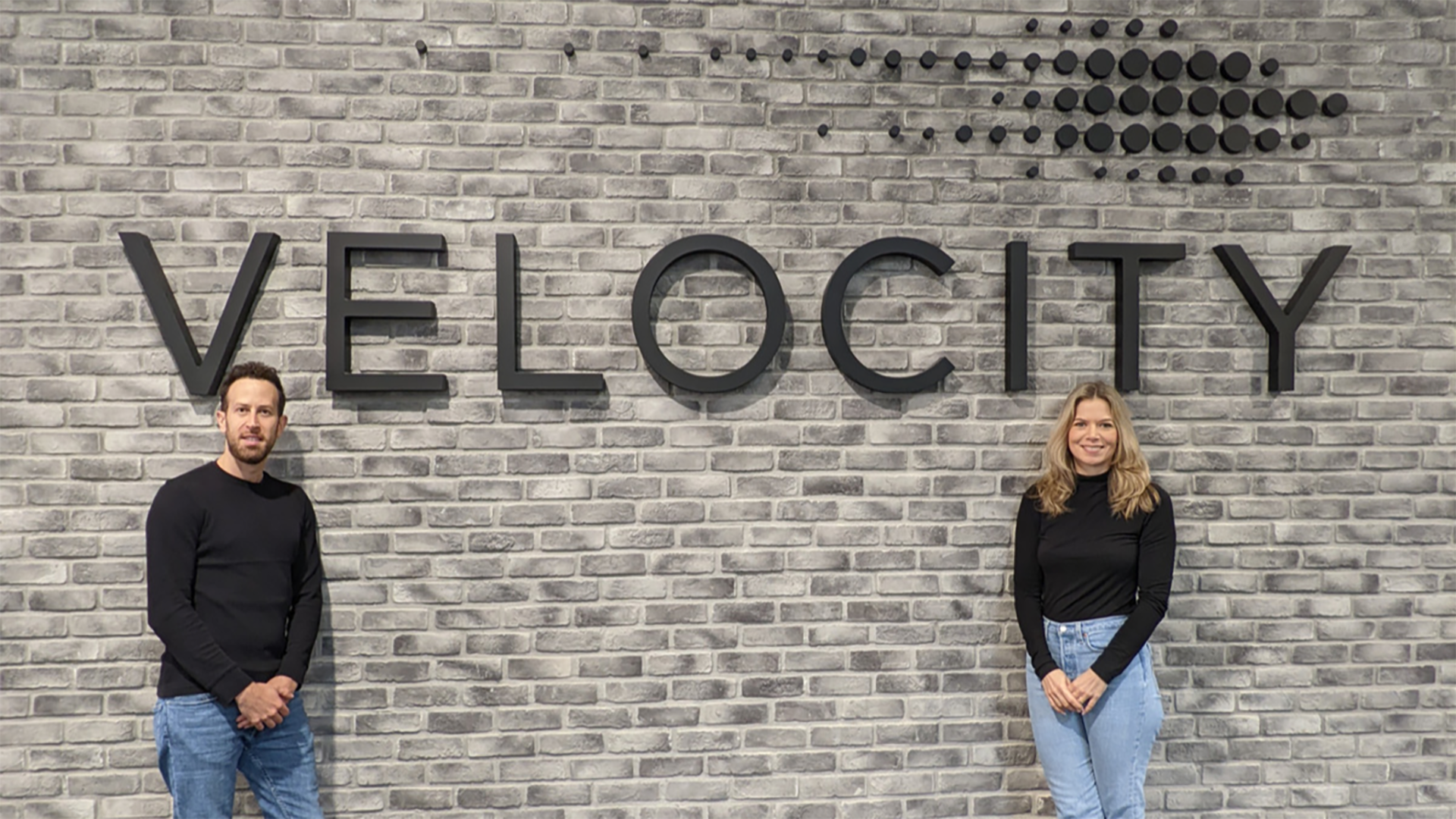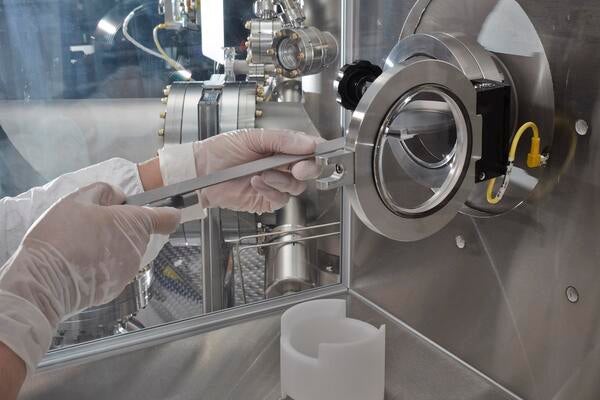
New wearable device can help halve your stress symptoms
Wellness device company Roga secures partnerships, funding since joining Velocity

Wellness device company Roga secures partnerships, funding since joining Velocity
By Media RelationsYou can talk to a therapist or take medication to treat stress and burnout, but what happens if you can’t afford therapy and medications don’t work for you?
Roga, a company that recently joined Velocity, University of Waterloo’s startup incubator, has developed a wearable mental wellness device, giving users stress relief options when therapy is too expensive or inaccessible, or when medication usage is limited due to side effects or stigma.
Users wear the Roga device behind the ears like headphones, stimulating the peripheral nerve behind each ear which reduces worry and rumination. The device is paired with an app, which uses artificial intelligence to provide personalized, guided meditations.
“Once users calm down, they feel more resilient against the stressors they have in their life,” said Dr. Alison Smith, Roga’s co-founder and chief scientist. “This type of non-invasive, gentle peripheral nerve stimulation is based on decades of research on what type of stimulation elicits positive changes in the brain.”

Roga's co-founder and CEO, Ami Lebendiker (left) and Dr. Alison Smith, Roga’s co-founder and chief scientist.
There are 16 clinical trials using similar technology to Roga showing that if this type of wearable stimulation device is used once a day for 20 to 60 minutes for six weeks, stress symptoms can be reduced by up to 50 per cent.
Roga co-founder and CEO, Ami Lebendiker said the wellness device market is vibrant and currently their technology is serving people experiencing intense stress. Businesses are purchasing it as a solution to curb their employees’ stress and burnout, which is leading to performance declines, rise in absenteeism, and employee turnover.
But the co-founders' goal is for the device to receive medical device status in order to reach the anxiety patient population. And that mission is critical, for personal reasons.
“Both Alison and I had clinical anxiety disorders, and we know what people who have anxiety are up against,” Lebendiker said. “Medication can take weeks to work and therapy is often cost-prohibitive and inaccessible — we know anxiety patients need better solutions.”
The company joined Velocity to access networks, funding, and mentorship, especially for support on this medical device path.
“The University of Waterloo is a very well recognized institution for the number of startups it spins out and it was very important for me to join Velocity while growing Roga,” said Smith, who has her PhD in neurophysiology from Waterloo. “During our short time at Velocity, we’ve launch our first product, secured our first five corporate clients and shipped 500 devices, we were voted one of the World Changing Ideas by Fast Company, and we secured our first global partnership with a health tech distributor in India, and are about to start two research projects — there’s no way we could have been able to secure these milestones without Velocity.”
About Velocity
Velocity accelerates entrepreneurs’ growth from ideas to early-stage startups and beyond. These founders have access to unmatched resources, collaboration space, funding and an expansive and experienced network made possible only by the University of Waterloo — Canada’s top university for founders. In the 15 years since its inception as a University of Waterloo residence, more than 400 Velocity companies have netted more than US$26 billion in enterprise value.
Velocity health companies are funded in part by the Government of Canada through the Federal Economic Development Agency for Southern Ontario (FedDev Ontario).

Read more
New Zealand adopts researcher-centric principles after studying Waterloo’s pioneering approach to IP ownership

Read more
Here are the people and events behind some of this year’s most compelling Waterloo stories

Read more
It Started in Waterloo: An Astronaut's Journey into the Universe of Innovation, narrated by Chris Hadfield, highlights the University of Waterloo’s role in igniting innovation within the region and beyond.
The University of Waterloo acknowledges that much of our work takes place on the traditional territory of the Neutral, Anishinaabeg, and Haudenosaunee peoples. Our main campus is situated on the Haldimand Tract, the land granted to the Six Nations that includes six miles on each side of the Grand River. Our active work toward reconciliation takes place across our campuses through research, learning, teaching, and community building, and is co-ordinated within the Office of Indigenous Relations.